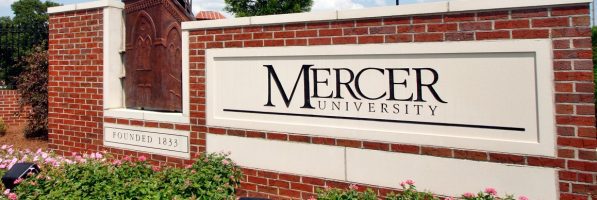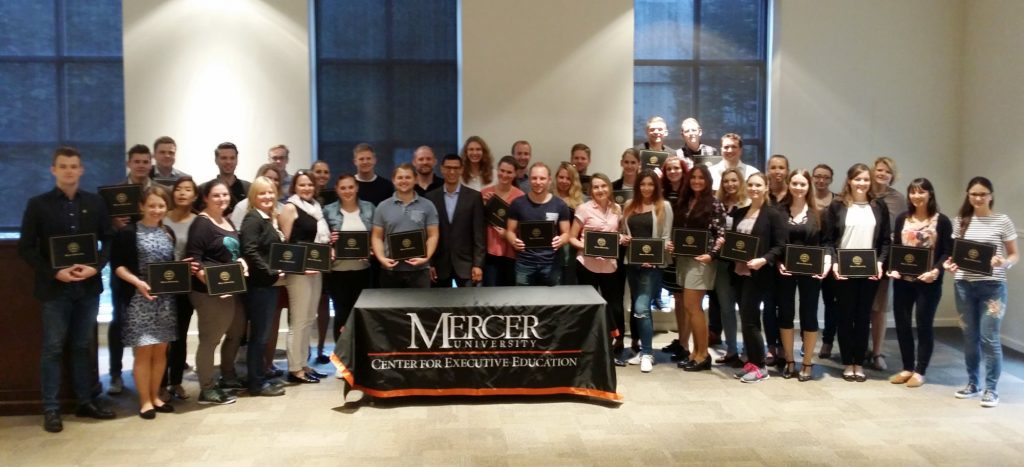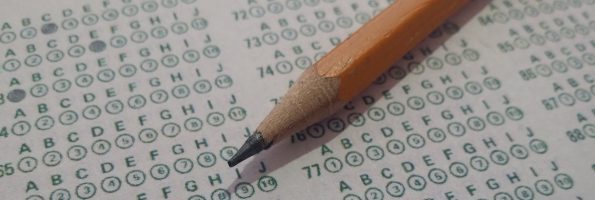German Graduate Students Head to Mercer Business

For the first half of October, the Mercer University Eugene W. Stetson School of Business & Economics hosted 40 FOM Hochshule students from Essen, Germany. The select students participated in a series of workshops, seminars, and more.
With their participation in the Oct. 2-13 program, the German students earned Lean Six Sigma Green Belt certifications as well as university credits. Along with the aforementioned workshops and seminars, students in the two-week program also visited the Atlanta Tech Village—a massive co-op hub (the fourth biggest in the U.S.) that houses companies such as SalesLoft and Namely, as well as the city’s chamber of commerce—and the SweetWater Brewery.

Forty students gather from the FOM Hochshule, the university of applied sciences in Essen, Germany/via Mercer
On the international program, Dr. Markus H. Dahm from FOM Hochshule, says (translated), “The combination of Lean Management and Six Sigma enables organizations to increase their productivity, achieve higher quality, and remain competitive in the long term. This basic course offers an ideal introduction to the topic.”
In a recent press release, Dr. Eric Kushins, Assistant Professor of Entrepreneurship and Director of Executive Programs at Stetson said, “The Center for Executive Education would like to thank Dean Susan P. Gilbert for helping to establish this relationship and for providing support for this program. The training would not have been so well received without the excellent teaching from Dr. Myriam Quispe-Agnoli, Dr. Beth Chapman, Dr. Nik Volkov, and Joseph Briner.”
“And a special thanks to Dr. Michael Weber and Dr. Julie Petherbridge for teaching and assisting with the logistics and organization,” he also added.
Click here to read more about the two-week stay and what you need to know to earn a Lean Six Sigma Green Belt certification.
Columbia Study Illuminates Surprising Link Between Air Quality and Economic Output

Air quality and stock profits may not seem like there is an obvious correlation, but a new study may have found one. The Columbia Business School recently discussed the link between “higher levels of air pollution and a reduction in investor trading activity,” drawing a striking connection between air pollution and overall economic output in the developed world.
In the new study entitled “Fresh Air Eases Work,” Columbia Business School professor Michaela Pagel, who co-authored the study along with researchers from Leibniz University in Hanover, Germany, tracked “highly detailed hourly air pollution levels from 600 air, weather and traffic stations” and “online account trading activity and customer demographics from a large German discount broker.”
Piggybacking on previous research that correlated air pollution with everything from “short-term variations in major stock market indexes” to “baseball umpire game calls,” the researchers correlated the two data sets and found that “the negative impact of air pollution on workplace performance and the economy at large is far more widespread than previously believed.”
The study found that when air quality worsens, investors are “less likely to log into and trade in their online brokerage accounts.” According to the study, a “one-standard-deviation increase in fine particulate matter reduces trading activity by 8.5 percent the same magnitude as a one standard deviation increase in sunshine.”
Pagel concludes, “The rather frightening conclusion is that even relatively invisible fine air particular matter damages cognitive ability by moving through the nose to the brain. We hope it serves as motivation for both corporate leaders and elected officials to focus on air quality control and improvement efforts.”
New GMAC Report: Is the GMAT Getting Easier?

Is the GMAT getting easier? That’s the question that the Graduate Management Admission’s Council (GMAC), a non-profit organization of leading graduate management schools, set out to answer in their recent market intelligence report: The GMAT Exam Is Not Getting Easier: The Fallacy of Score Increases and the Impact of Score Preview. The 26-page white paper is the first in an annual series that will serve as a sort of quality assurance (QA) report for the GMAT.
The Best Los Angeles Global MBA Programs

Globalization is a foregone conclusion in the business world. Emerging markets overseas are gaining economic momentum and cultural fluency of international issues are becoming increasingly essential for business leaders. MBA students and graduates who ignore the undeniable shift toward interconnected markets may be left behind in today’s globalized world.
Booth Research Analyzes Renewable Energy

New research via University of Chicago Booth School of Business Professor John R. Birge and German researchers, Ingmar Ritzenhofen and Professor Stefan Spinler of the WHU-Otto Beisheim School of Management, have comprehensively analyzed the various schemes to support renewable energy generation and find ways to reduce carbon emissions as well as end fossil fuel dependence. Continue reading…
